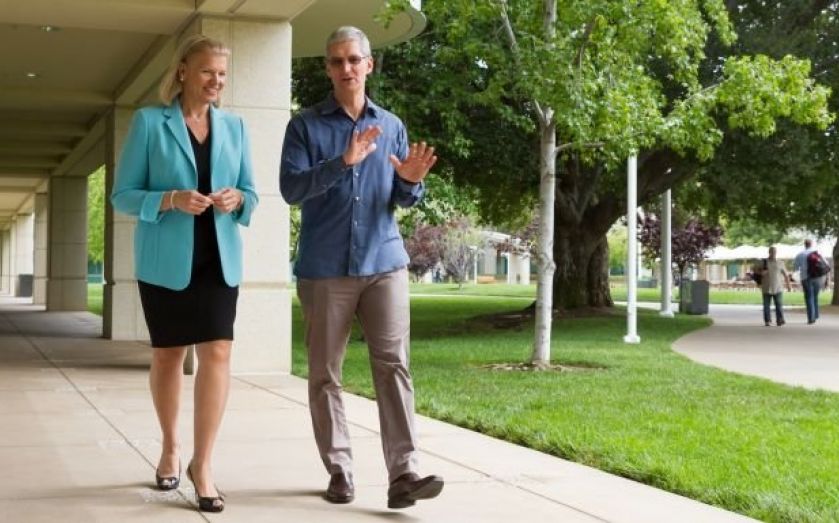| Updated:
Apple and IBM team up to create new business apps

Apple and IBM are partnering up to co-develop business-centric apps for iPhones and iPads, which they intend to make available later this year.
The new class of “made-for-business apps” will target specific industry issues and opportunities for clients in sectors such as retail, healthcare, banking, travel and insurance.
The two companies intend to combine their strengths to transform specific aspects of how businesses and employees work with iPhones and iPads, allowing them to carry out tasks more efficiently and effectively.
Technology and consulting firm IBM will bring its big data and analytics capabilities to the table, while Apple will provide an advanced developer platform, expertise in consumer experience and hardware and software integration.
“For the first time ever we’re putting IBM’s renowned big data analytics at iOS users’ fingertips, which opens up a large market opportunity for Apple. This is a radical step for enterprise and something that only Apple and IBM can deliver,” said Apple's chief executive Tim Cook.
IBM has the world's largest portfolio in big data consulting and technology expertise, spanning research and development, solutions, software and hardware.
The software, which IBM will start selling to business clients, will be pre-installed in Apple's mobile devices and will be developed exclusively for iPads and iPhones. It will give users access to IBM cloud services optimised for iOS, and an AppleCare service offering tailored support to meet the needs of each enterprise.
“Mobility—combined with the phenomena of data and cloud—is transforming business and our industry in historic ways, allowing people to re-imagine work, industries and professions,” said Ginni Rometty, Chairman and chief executive of IBM.
“This alliance with Apple will build on our momentum in bringing these innovations to our clients globally, and leverages IBM’s leadership in analytics, cloud, software and services.”
Apple's shares rose by around 1.5 per cent in after-hours trade, while IBM's were up by 1.8 per cent.